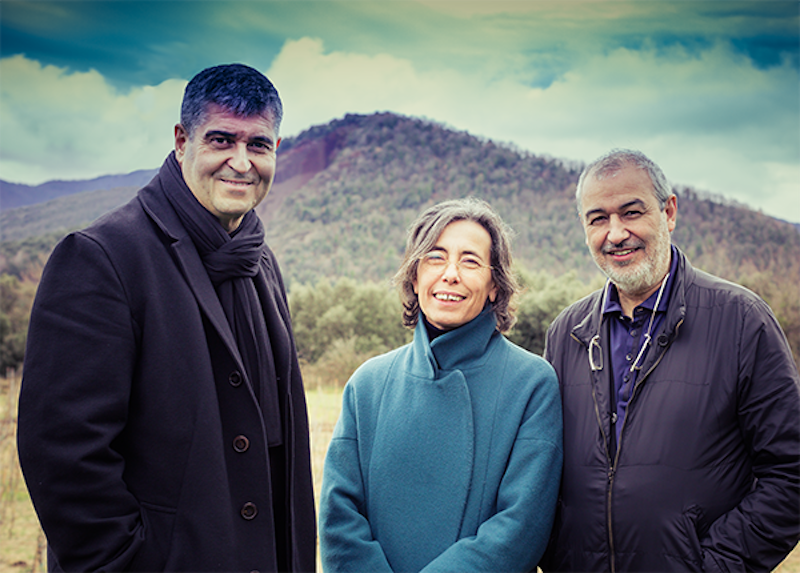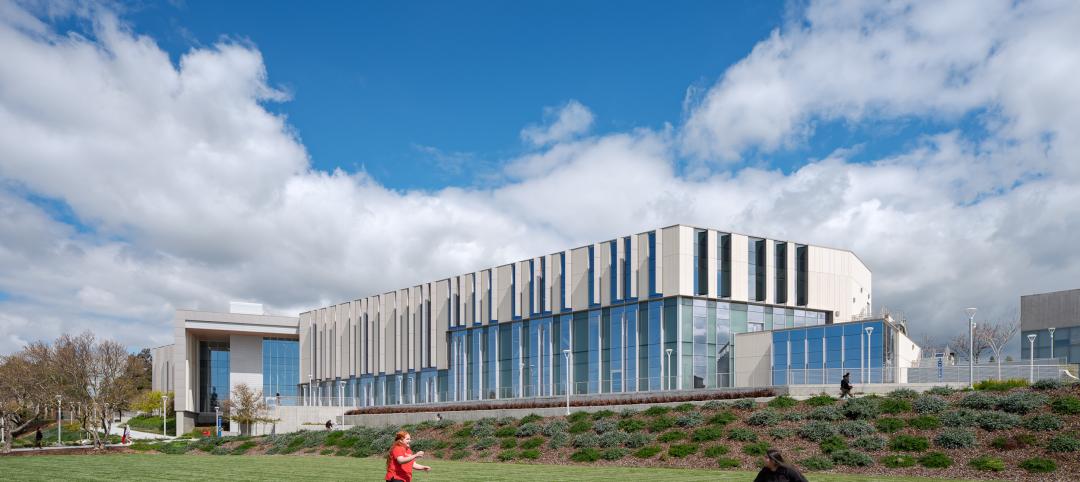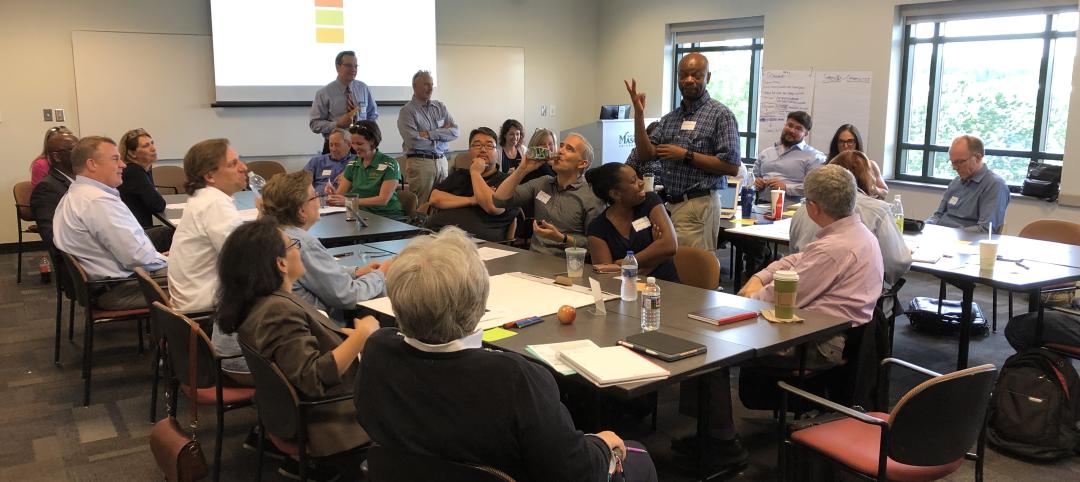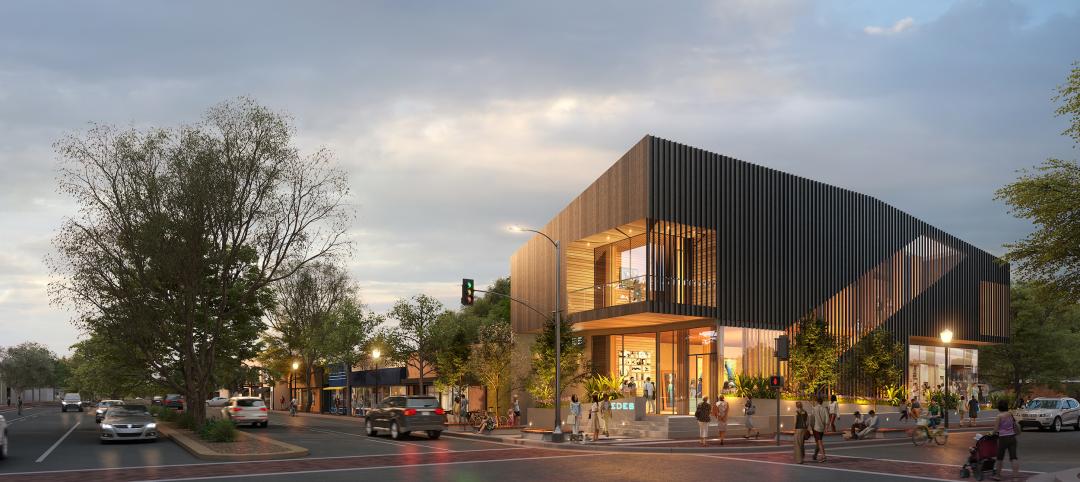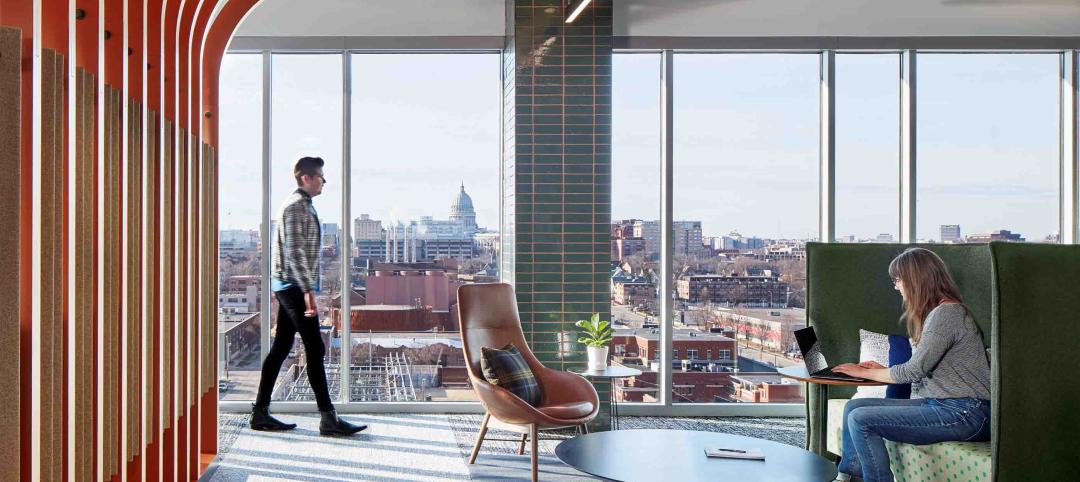Rafael Aranda, Carme Pigem and Ramon Vilalta have been selected as the 2017 Pritzker Architecture Prize Laureates, announced Tom Pritzker, Chairman of Hyatt Foundation, which sponsors the award that is known internationally as architecture’s highest honor.
The three architects, originating from Olot, in the Catalonian region of Spain, have worked together collaboratively since founding their firm RCR Arquitectes, in their hometown in 1988. Their work demonstrates an unyielding commitment to place and its narrative, to create spaces that are in discourse with their respective contexts. Harmonizing materiality with transparency, Aranda, Pigem and Vilalta seek connections between the exterior and interior, resulting in emotional and experiential architecture.
Mr. Pritzker says, “The jury has selected three architects who have been working collaboratively for nearly three decades. Mr. Aranda, Ms. Pigem and Mr. Vilalta have had an impact on the discipline far beyond their immediate area. Their works range from public and private spaces to cultural venues and educational institutions, and their ability to intensely relate the environment specific to each site is a testament to their process and deep integrity.”
Mr. Aranda, Ms. Pigem, and Mr. Vilalta represent the first time that three architects together are honored with the prize. Their intensely collaborative way of working together, where the creative process, commitment to vision and all responsibilities are shared equally, led to the selection of the three individuals for this year’s award. As the winners of the 39th edition of the Prize, it is the second time that laureates hail from Spain, following Rafael Moneo who received the award in 1996. In response to being named the 2017 Laureates of the Pritzker Prize, Ms. Pigem states: “It is a great joy and a great responsibility. We are thrilled that this year three professionals, who work closely together in everything we do, are recognized.”
The locally-based architects evoke universal identity through their creative and extensive use of modern materials including recycled steel and plastic. “They’ve demonstrated that unity of a material can lend such incredible strength and simplicity to a building,” says Glenn Murcutt, Jury Chair. “The collaboration of these three architects produces uncompromising architecture of a poetic level, representing timeless work that reflects great respect for the past, while projecting clarity that is of the present and the future.” As such, an early 20th century foundry has become their office, Barberí Laboratory (2007), and many remnants of the original building have remained, blended with highly contrasting, new elements, which were added only where essential.
Notable projects include La Cuisine Art Center (Nègrepelisse, France, 2014), Soulages Museum in collaboration with G. Trégouët (Rodez, France, 2014), La Lira Theater Public Open Space in collaboration with J. Puigcorbé (Ripoll, Girona, Spain, 2011), Les Cols restaurant marquee (Olot, Girona, Spain, 2011), El Petit Comte Kindergarten in collaboration with J. Puigcorbé (Besalú, Girona, Spain, 2010), Bell-Lloc Winery (Palamós, Girona, Spain, 2007), Sant Antoni - Joan Oliver Library, Senior Citizen’s Center and Cándida Pérez Gardens (Barcelona, Spain, 2007), and Tossol-Basil Athletics Track (Olot, Girona, Spain, 2000).
The 2017 Pritzker Prize Jury Citation says, in part, “we live in a globalized world where we must rely on international influences, trade, discussion, transactions, etc. But more and more people fear that because of this international influence…we will lose our local values, our local art, and our local customs…Rafael Aranda, Carme Pigem and Ramon Vilalta tell us that it may be possible to have both. They help us to see, in a most beautiful and poetic way, that the answer to the question is not ‘either/or’ and that we can, at least in architecture, aspire to have both; our roots firmly in place and our arms outstretched to the rest of the world.”
In 2013 Mr. Aranda, Ms. Pigem and Mr. Vilalta founded RCR BUNKA Foundation to support architecture, landscape, arts and culture throughout society. They have been consultant architects to the Natural Park of the Volcanic Zone of La Garrotxa since 1989. Much of their work may be seen throughout Catalonia, Spain and greater Europe. They remain based in Olot.
This year, the Pritzker Prize ceremony will take place at the State Guest House, Akasaka Palace in Tokyo, Japan, on May 20, 2017.
Related Stories
Engineers | Jun 14, 2023
The high cost of low maintenance
Walter P Moore’s Javier Balma, PhD, PE, SE, and Webb Wright, PE, identify the primary causes of engineering failures, define proactive versus reactive maintenance, recognize the reasons for deferred maintenance, and identify the financial and safety risks related to deferred maintenance.
University Buildings | Jun 14, 2023
Calif. State University’s new ‘library-plus’ building bridges upper and lower campuses
A three-story “library-plus” building at California State University, East Bay (CSUEB) that ties together the upper and lower campuses was recently completed. The 100,977-sf facility, known as the Collaborative Opportunities for Research & Engagement (“CORE”) Building, is one of the busiest libraries in the CSU system. The previous library served 1.2 million visitors annually.
Higher Education | Jun 14, 2023
Designing higher education facilities without knowing the end users
A team of architects with Page offers five important factors to consider when designing spaces for multiple—and potentially changing—stakeholders.
Resiliency | Jun 14, 2023
HUD offers $4.8 billion in funding for green and resilient building retrofit projects
The Department of Housing and Urban Development (HUD) recently released guidelines for its Green and Resilient Retrofit Program (GRRP) that has $4.8 billion for funding green projects.
Arenas | Jun 14, 2023
A multipurpose arena helps revitalize a historic African American community in Georgia
In Savannah, Ga., Enmarket Arena, a multipurpose arena that opened last year, has helped revitalize the city’s historic Canal District—home to a largely African American community that has been historically separated from the rest of downtown.
Building Materials | Jun 14, 2023
Construction input prices fall 0.6% in May 2023
Construction input prices fell 0.6% in May compared to the previous month, according to an Associated Builders and Contractors analysis of the U.S. Bureau of Labor Statistics’ Producer Price Index data released today. Nonresidential construction input prices declined 0.5% for the month.
Mass Timber | Jun 13, 2023
Mass timber construction featured in two-story mixed-use art gallery and wine bar in Silicon Valley
The Edes Building, a two-story art gallery and wine bar in the Silicon Valley community of Morgan Hill, will prominently feature mass timber. Cross-laminated timber (CLT) and glulam posts and beams were specified for aesthetics, biophilic properties, and a reduced carbon footprint compared to concrete and steel alternatives.
Mixed-Use | Jun 12, 2023
Goettsch Partners completes its largest China project to date: a mixed-used, five-tower complex
Chicago-based global architecture firm Goettsch Partners (GP) recently announced the completion of its largest project in China to date: the China Resources Qianhai Center, a mixed-use complex in the Qianhai district of Shenzhen. Developed by CR Land, the project includes five towers totaling almost 472,000 square meters (4.6 million sf).
Engineers | Jun 12, 2023
Stantec to acquire Environmental Systems Design
Stantec, a global leader in sustainable design and engineering, has signed an agreement to acquire Environmental Systems Design, Inc. (ESD), a 270-person engineering firm headquartered in Chicago. Founded in 1967, ESD has built a reputation for excellence and innovation in high-performance design with a roster of industry-leading clients. The terms of the transaction are not disclosed.
University Buildings | Jun 9, 2023
Cornell’s new information science building will foster dynamic exchange of ideas and quiet, focused research
Construction recently began on Cornell University’s new 135,000-sf building for the Cornell Ann S. Bowers College of Computing and Information Science (Cornell Bowers CIS). The structure will bring together the departments of Computer Science, Information Science, and Statistics and Data Science for the first time in one complex.


